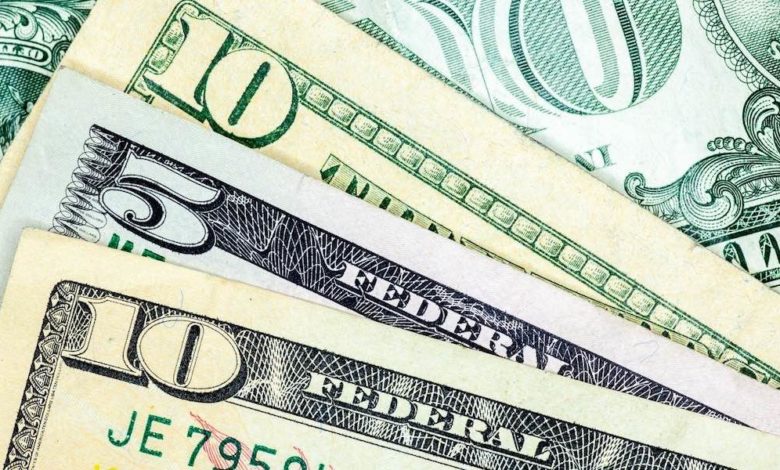Just what is green finance?

There sure are a heck of a lot of conferences these days focused on so-called green finance. The term has become a buzzword, and yet, just what does it really mean? I certainly hope it is not some cunning way of trading pollution.
We are bombarded daily with claims of net zero, carbon neutral and zero carbon and yet no one can tell me clear, universally agreed definitions of what these terms mean in reality.
There is no consistency in all these green or sustainability loans. Frankly a lot of it is simply trading certificates. Take planting trees, for instance. I remind readers of the ways of the Catholic Church, where you could pay extra to get rid of your sins.
The World Bank is all over this green finance craze, as is the Loan Market Association, while class societies are getting in on the act, saying they’re well placed to judge good corporate green deeds.
Banks could really benefit from using the expertise of IACS
It is really such a confused market with no clear criteria. The loans can be fleet-wide or for single ships. The folk over at the Poseidon Principles too have come in for criticism of late when it emerged that the green finance alliance’s annual efficiency ratio (AER) calculations have plenty of holes that need urgent fixing.
What it comes down to is the banks want to be seen to be green, but they really have little understanding or rather little guidance of what that means for their shipping clients.
We need a global objective standard where everyone can compare notes. One of those organisations who could do something sensibly is the International Association of Classification Societies (IACS) as they know the quality and capabilities of the ships. Banks could really benefit from using the expertise of IACS.
Another thing to bear in mind as green cash becomes available is the very real prospect that the shipping industry’s total emissions could well rise this year in tandem with the exuberant markets.
Shipping has been very good at reducing emissions since 2008 thanks to vessel speed reductions as markets had been awful since the global financial crisis. However, 2021 has been a fine year for many sectors – bulk speeds are coming back up as well as for the record-breaking boxships . There’s an exponential curve in terms of fuel consumption – one knot could see up to 25% increase in fuel consumption – underlining for me the urgent need for a carbon tax.
Clarksons Research noted recently the booming markets could “edge up” shipping’s emissions this year, outstripping 2020’s total and returning to 2019 levels. That’s something that will be tricky to explain to your green banker.
Another issue is of course the charterers. Present charter parties leave it to the charterer to decide the speed of the ship and if they just need the cargo quickly, I do not see them too concerned about whether the ship pollutes or even breaks the new standards coming from IMO and other official bodies.
Hopefully, shipowners in their eagerness to enter into new presently juicy charter parties will be smart enough to include a clause about complying at all times to the new rules and regulations coming.
This article first appeared in the latest issue of Maritime CEO magazine. Splash readers can access the full magazine for free by clicking here.

Thanks for this Dagfinn. Thought provoking, and alarming to hear of effective greenwashing hell mary’s. Financiers should be working with class to ensure the deployment of far more innovative techs incl. wind, bubbles etc – and not -de-rating engines and slowing down. Completely countr-intuitive in the long run; just look at order books!
Class has a vital role – but it should not be to define how we decarbonise ships and fleets, but to approve and verify…it sets a dangerous precedent if class are responsible for driving and accelerating change – they’re not set up for it, and not should they be; seems like there’s a degree to which otherwise the teacher is marking his or her own work. And agree completely on dangers or comparing trends of post 2008 to now. Tax essential to curb growth in shipping GHG – with levels likely to rise in 2021.
Well said, Dagfinn.
Banking must be a fairly dull business, given the number of bankers who always want to hop onto any passing bandwagon – “Islamic Finance” (pretend that the interest isn’t interest) was yesterday’s and today’s is “Green Finance” (someone somewhere might have some trees to sell, preferably twice)…
Green Financing for converting ship-breaking yards into Green Yards is worthy of financing. Would like to find out if private financial institutions or Governmental bodies are involved in financing to upgrade ship breaking yards into Green Yards. Thanks
Pity Intertanko spoke so strongly against a GHG levy at MEPC76, guess they prefer the EU ETS.
It’s very important for (ex-)senior shipping bankers like Dagfinn to call people out on this stuff. He’s absolutely right. All you need to do is slow down, paint your hull, and/or take credit for somebody else planting a tree, and all of a sudden you can issue green bonds, get green loans, and pay lower margins. Has this generation never heard of the Emperor’s New Clothes? This is a con job. Wake up people.